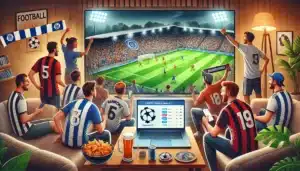How is Sex Trafficking in the US Affecting Our Mental Health?
The factors that affect mental health are vast, but there is no doubt that fear of sex trafficking and consumption of pornography impact our society. What many people don’t know is how the two are linked and how consumption of porn can support a billion-dollar sex trafficking industry.
Porn Reigns
Americans are the largest producers of pornography in the world. We’re also the biggest consumers. People who think porn production and consumption is innocuous often don’t understand how they are linked. When a woman is sex trafficked, there is a very high chance she will be forced to participate in pornography. This means that many women seen in pornography, whether in pictures or videos, are not performing those actions willingly. By consuming porn, we inadvertently support traffickers and adopt a casual view of women’s pain and victimization. Additionally, according to Fight the New Drug, the rampant consumption of porn actively harms healthy relationships, which can lead to a variety of unintended consequences.
Women and Children Fear
Women and girls are not the only ones trafficked, but research shows that they are targeted more frequently than men and boys. This adds to the feeling in our culture that females have the most to fear and data supports that, when it comes to being trafficked, it is true.
Girls are usually pulled into sex trafficking during the late tween and early teen years, making a time that should be full of fun and growth ripe for anxiety about all the potential risks for harm. The minds of females are always making room for fears and assessing situations to try to avoid harm. This creates a culture of fear that keeps females in a fear cycle, worried both about what will happen to them and if they will be blamed.
Fear Everlasting
Even women who escape sex traffickers have to deal with the effects of pornography. Since many females are forced to participate in porn when trafficked, videos and pictures of them are out in the world, often on the internet. Though this is not their fault, they are aware that those images will likely linger forever, following them around due to no fault of their own. This creates a perpetual fear, even when the cycle of physical abuse has ended.
Sometimes, even the threat of blackmail keeps girls from trying to escape traffickers. Our society has created a space where women feel worse about being trafficked than traffickers do about harming them, a fact that ties into many people’s attitudes about rape and assault.
Understanding the link between pornography and sex trafficking is essential. Knowledge helps us be more conscious consumers and allows us to create a safer world for women and girls.







